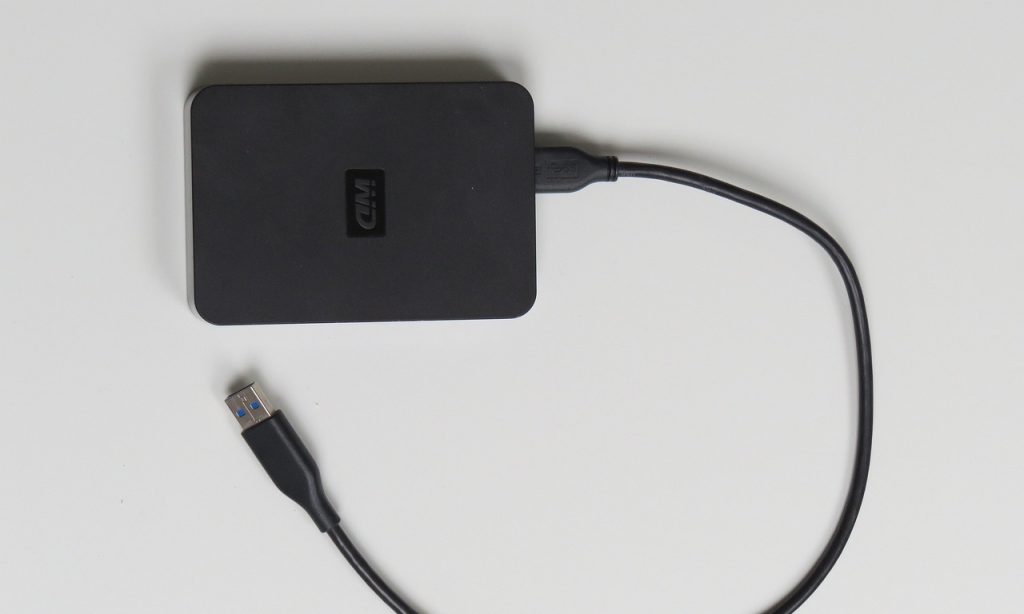Your computer quickly runs out of space, making an external drive a great solution for storing your digital content. Considering the growing options for cloud-based storage in today’s market, we aim to explore the continued advantages of using an external hard drive.
Continue reading to learn about the functions of external hard drives and the distinction between internal and external drives before we delve into the reasons for using this storage solution.
External Hard Drive: An Introduction
Even though external hard drives come in different storage sizes, they all connect to a computer externally, as the name implies. In simple terms, an external hard drive, also called a portable hard drive, is a device connected to a PC via USB used to back up data or as portable storage.
The Difference between an External and an Internal Hard Drive
When it comes to internal versus external drives, the primary distinction boils down to where they are situated. An external HDD is a tool that can be connected to your computer to provide more storage capacity, eliminating the need to access your PC’s internal storage for upgrades.
External drives are compact storage tools commonly utilized for storing files like pictures, films, and papers. However, that’s not how an internal HDD works.
Internal hard drives are essential for computers to function because they typically come pre-loaded with operating systems and crucial software.
While it’s technically feasible to take out the internal drive for a new one, it’s simpler for users to opt for a portable external hard drive to expand the storage on their laptop or computer.
It is important to remember that internal drives are integrated into your computer, while external drives are not. So, their setup procedure will be somewhat different.
Benefits of Having an External Hard Drive
1: Can Offer Extra Space
Owning an external hard drive gives you the ability to easily store backups of all the data from your computer or laptop.
Accidents can occur unexpectedly, like dropping your laptop during your commute, experiencing a power surge, spilling a drink, or facing a computer malfunction.
Your computer is vulnerable to various mishaps at any moment. It is advantageous to regularly update your data to prevent any loss of important information.
While you can backup most of your files with the cloud, there are various disadvantages such as potential monthly fees and data limitations.
2: Retain Ownership of Your Information
By saving all your data from your PC to an external hard drive, you will ensure you always maintain ownership of your photos, documents, and videos.
Many individuals may believe this remains true when utilizing platforms such as Google Drive, but upon closer inspection of the terms and conditions, it becomes evident that this is not always accurate. Once you input all this data into the servers, the cloud service provider can utilize your information in multiple ways for their own purposes.
While Google can’t steal your vacation pictures and pass them off as their own, they’re permitted to utilize them for various reasons as per the agreement you agreed to when you started using their services.
3: Offer Offline Portability and Access to Your Data
By using an external drive, you can enjoy increased portability and access to all your computer files, even offline. It’s because the external hard drives now come in smaller sizes than before.
Hence, you can simply put them in your backpack and bring them along wherever you go. In the end, even if you are disconnected from the internet for an extended period, you can still retrieve all the data saved on your computer.
When on vacation in a foreign country, having this advantage is helpful due to the potential for weak Wi-Fi connection. If you have the external hard drive with you, you can access all the data from your computer wherever you are.
4: Safer Environment
Using an external hard drive is a safer option for storing your files compared to relying on cloud services. Considering the risks involved in accessing your data through cloud storage on a public computer is crucial.
Various types of spyware, keyloggers, and malware could be actively operating unnoticed, while your browsing history and cookies may also be saved on a shared computer.
Also, there is a chance that individuals could be observing your screen, or you may accidentally leave your personal account logged in, depending on your location.
As the internet user population grows, so does the population of online hackers.
Storing data online makes you vulnerable to cyber-attacks at any given time. While many cloud services have robust security protocols in place, hackers are utilizing advanced technology to breach accounts, highlighting the need for cautiousness in storing data online.
5: No Additional Fees
Having an external hard drive is more affordable because you won’t need to pay monthly fees for additional cloud storage space. Often, to increase the amount of data or documents stored in the cloud, one must pay additional fees for extra storage space.
Buying an external hard drive is much more budget-friendly for you. Actually, due to decreased usage, prices are continually decreasing. Despite the high initial cost, you won’t have to concern yourself with a monthly fee for an external hard drive.
